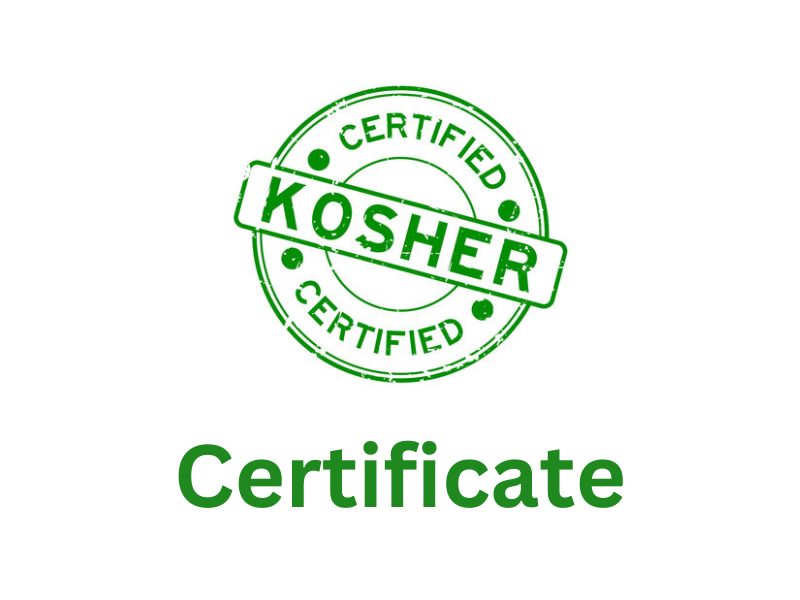Introduction
Navigating the kosher certification process can seem like a daunting task. However, understanding its importance and the steps involved can make the journey smoother. Whether you’re a small business or a large corporation, getting kosher certified can open up new market opportunities and build consumer trust. This guide will walk you through the essentials of kosher certification, with a special focus on kosher certification in India and the benefits of Orthodox Kosher Supervision.
Understanding Kosher Certification
What is Kosher?
Kosher, a term derived from Hebrew, means “fit” or “proper.” It refers to food that complies with strict dietary standards set by Jewish law. These laws dictate what foods are permissible and how they should be prepared and consumed.
Why is Kosher Certification Important?
Kosher certification is a stamp of approval indicating that a product meets the rigorous standards of Jewish dietary laws. This certification is not only crucial for Jewish consumers but also appeals to those seeking high standards of food safety, quality, and ethical practices.
Types of Kosher Certifications
Orthodox Kosher Supervision
Orthodox Kosher Supervision is often considered the gold standard in kosher certification. It involves meticulous inspection and ongoing supervision by qualified rabbis to ensure compliance with kosher laws.
Other Kosher Supervisions
There are various kosher certification agencies, each with its own standards and reputation. While Orthodox supervision is highly regarded, other reputable agencies also provide reliable certification services.
Kosher Certification Process Steps
Initial Inquiry
The first step is reaching out to a kosher certification agency to express your interest and gather information about their requirements and processes.
Application Submission
You’ll need to complete an application form, providing detailed information about your products, ingredients, and manufacturing processes.
Facility Inspection
An on-site inspection by a rabbi or kosher supervisor is crucial to ensure that your facility complies with kosher standards.
Ingredient Verification
All ingredients used in your products must be verified as kosher. This may involve obtaining kosher certificates from suppliers.
Production Supervision
Regular supervision during production ensures that all processes remain compliant with kosher laws.
Key Components of Kosher Certification
Kosher Ingredients
Only ingredients that meet kosher standards can be used. This includes avoiding certain animal products and ensuring that plant-based ingredients are free from contamination.
Kosher Equipment
Equipment used in production must be kosher, meaning it should not have been used for non-kosher foods. In some cases, equipment may need to undergo a koshering process.
Kosher Production Practices
Strict guidelines must be followed during production to prevent cross-contamination and ensure compliance with kosher laws.
Challenges in Getting Kosher Certification
Common Issues Faced by Businesses
Businesses often encounter challenges such as ingredient sourcing, equipment compliance, and maintaining consistent kosher practices.
Solutions and Best Practices
Working closely with a kosher certification agency, conducting thorough training for staff, and maintaining detailed records can help overcome these challenges.
Kosher Certification in Different Regions
Kosher Certification in India
India is witnessing a growing demand for kosher products. With its diverse food industry, obtaining kosher certification in India can significantly boost a company’s market reach.
Global Kosher Certification Standards
While the basic principles of kosher law remain the same, certification standards can vary by region. It’s important to understand and comply with the specific requirements of your target market.
Benefits of Kosher Certification
Market Expansion
Kosher certification can open doors to new markets, including the Jewish community and consumers who prioritize food safety and quality.
Consumer Trust and Confidence
A kosher certification mark is a sign of quality and trust, reassuring consumers that the product meets high standards.
Tips for a Smooth Kosher Certification Process
Choose the Right Certification Agency
Select an agency with a solid reputation and experience in your industry. This can make the certification process more efficient and credible.
Prepare Your Facility and Staff
Ensure your facility is ready for inspection and your staff is trained in kosher practices. This preparation can streamline the certification process.
Maintain Clear Documentation
Accurate and detailed records of ingredients, processes, and inspections are crucial for maintaining kosher certification.
Orthodox Kosher Supervision
Importance of Orthodox Supervision
Orthodox supervision is highly respected and ensures the highest level of compliance with kosher laws. This type of supervision can provide a competitive edge in the market.
Differences from Other Supervision Types
Orthodox supervision often involves more rigorous standards and continuous oversight compared to other types of kosher certification.
Kosher Certification India: A Growing Market
Demand for Kosher Products in India
The demand for kosher products in India is on the rise, driven by both the Jewish community and consumers seeking high-quality and ethically produced foods.
Key Certification Bodies in India
Several reputable agencies offer kosher certification in India, including local and international bodies that can help businesses navigate the certification process.
Maintaining Kosher Certification
Regular Audits
Regular audits by the certification agency ensure ongoing compliance with kosher standards.
Continuous Compliance
Maintaining kosher certification requires continuous adherence to kosher laws and prompt addressing of any issues that arise.
Common Misconceptions about Kosher Certification
Myths vs. Facts
There are several misconceptions about kosher certification, such as it being overly complex or only for large businesses. In reality, the process is manageable with the right guidance, and businesses of all sizes can benefit from certification.
Conclusion
Obtaining kosher certification can be a rewarding process, offering numerous benefits for businesses willing to meet the challenge. With the growing demand for kosher products, particularly in markets like India, now is an excellent time to consider getting certified. Remember to choose a reputable agency, prepare thoroughly, and maintain high standards to enjoy the full advantages of kosher certification.



